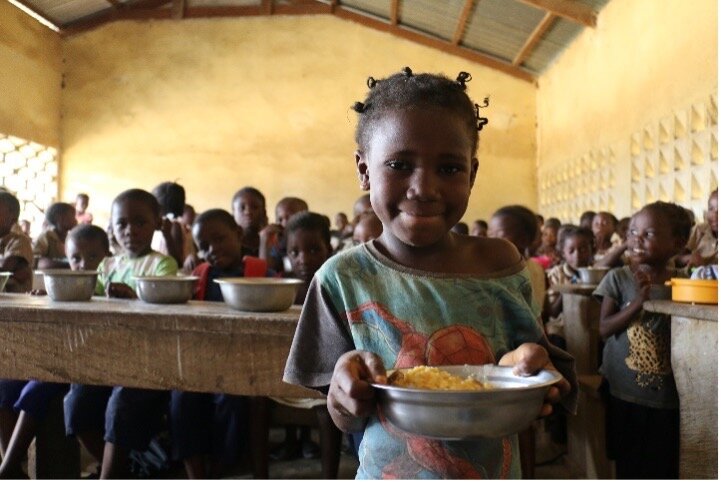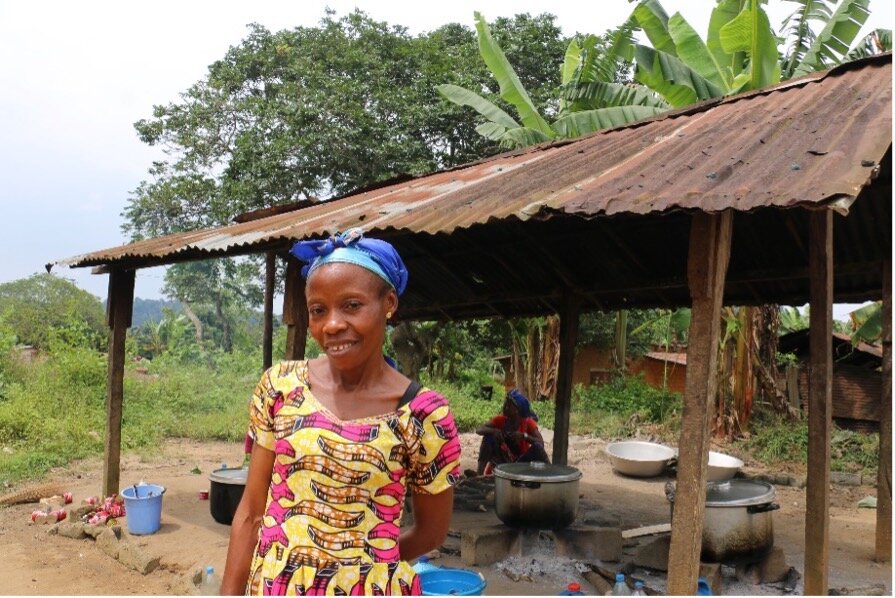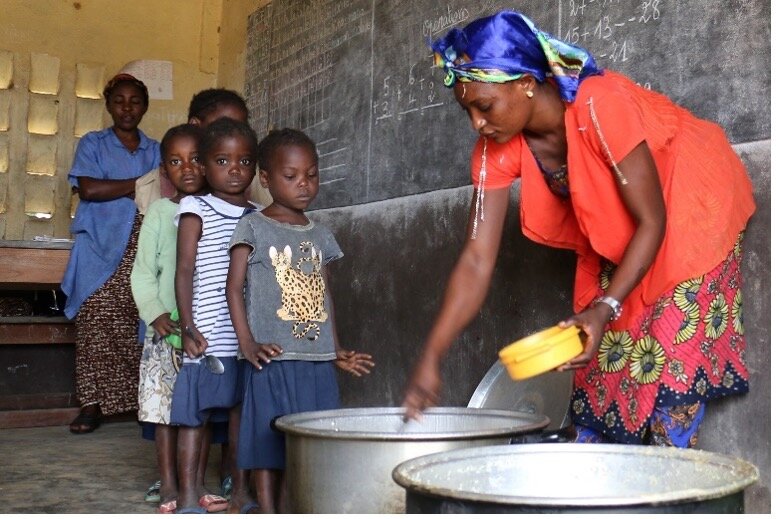WFP-backed school meals promote social inclusion among Indigenous peoples

A primary school serving school meals provides a leading example of efforts to promote social inclusion and harmony in the Republic of Congo.
Nearly one-third of children attending Makoubi school in Lekoumou, a department in the southwest, are Indigenous. Lekoumou itself is home to 20 percent of the country's Indigenous population.
In the Republic of Congo, these communities are particularly marginalized and have difficulties exercising their rights – including education – despite a law introduced by the Government in 2011 to promote inclusion. More than 65 percent of Indigenous children do not attend school, and more than 50 percent of Indigenous children do not have a birth certificate.
Every day at lunchtime, 313 Bantu children – the majority ethnic group in the country – and from the Indigenous population, share a freshly cooked meal, thanks to WFP’s school canteen programme. The programme is being implemented as part of a Joint SDG Fund initiative that offers improved access to social protection programmes for Indigenous peoples in Lekoumou.
The meals are cooked by the students' parents, especially mothers. Indigenous women – who are traditionally subject to prejudice – and Bantu women meet daily at the stove and cook together to enable all children to stay focused, learn and prepare for their future.

Georgette is one of the three Indigenous cooks at the Makoubi school. She has six children, with the two younger ones attending the school. As a mother of school students, she had noticed that many pupils were missing school days when there was no canteen.
"Before, the Bantus refused to eat meals cooked by the Indigenous people because they were considered dirty,” she says. “Now they do. And even outside of school, things are better.”
She believes the daily meals are a source of motivation for the children. They are even more important for Indigenous schoolchildren, who will unfortunately have to work harder to escape poverty as they still have very little access to basic social services.
Préfina is a Bantu school parent and cook, who joined the team when the canteen was launched in October 2020. Here she befriended some of her kitchen partners who belong to the Indigenous peoples' community.
Prefina's perceptions have evolved over the past few months, and the change runs deeper within the community. beyond that. "Today, if a native mother cooks a meal, Bantu children eat it,” she says. “That breaks down the prejudice.”

Strengthening the participation and inclusion of Indigenous peoples in Congo's food systems is a key step in enabling people to have equal and fair access to adequate, nutritious and diverse food. It also encourages parents to send their children to school and gain a potentially priceless education.
In addition to feeding programmes implemented in schools with Indigenous students, WFP is building the capacity of Indigenous smallholder farming groups in Lekoumou, organizing sessions to discuss the national law on the promotion and protection of the rights of Indigenous people, with a particular focus on access to land.
These activities are part of a joint programme aimed at improving access to social protection for Indigenous people in Lekoumou department. It is implemented by WFP along with the World Health Organization and UNICEF. A total of 50,000 Indigenous people will receive assistance between January 2020 to December 2021.
The theme of this year's International Day of the World’s Indigenous Peoples is: Leaving No One Behind: Indigenous peoples and the call for a new social contract. You can learn more here. You can read WFP's statement for the day here.
